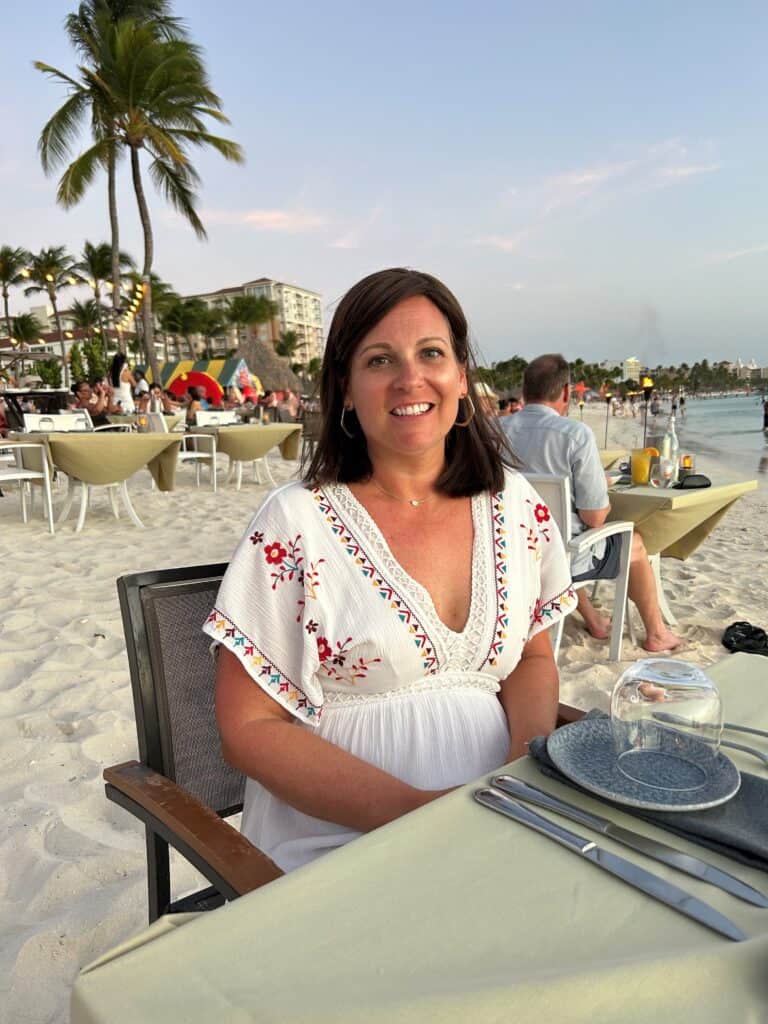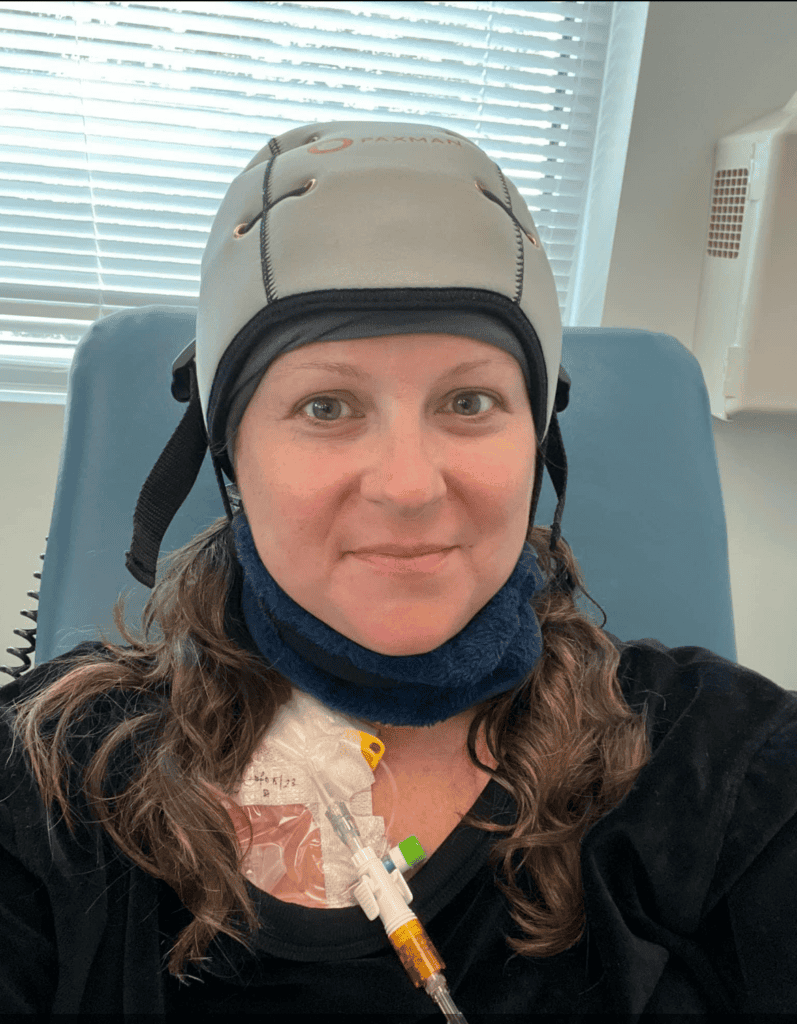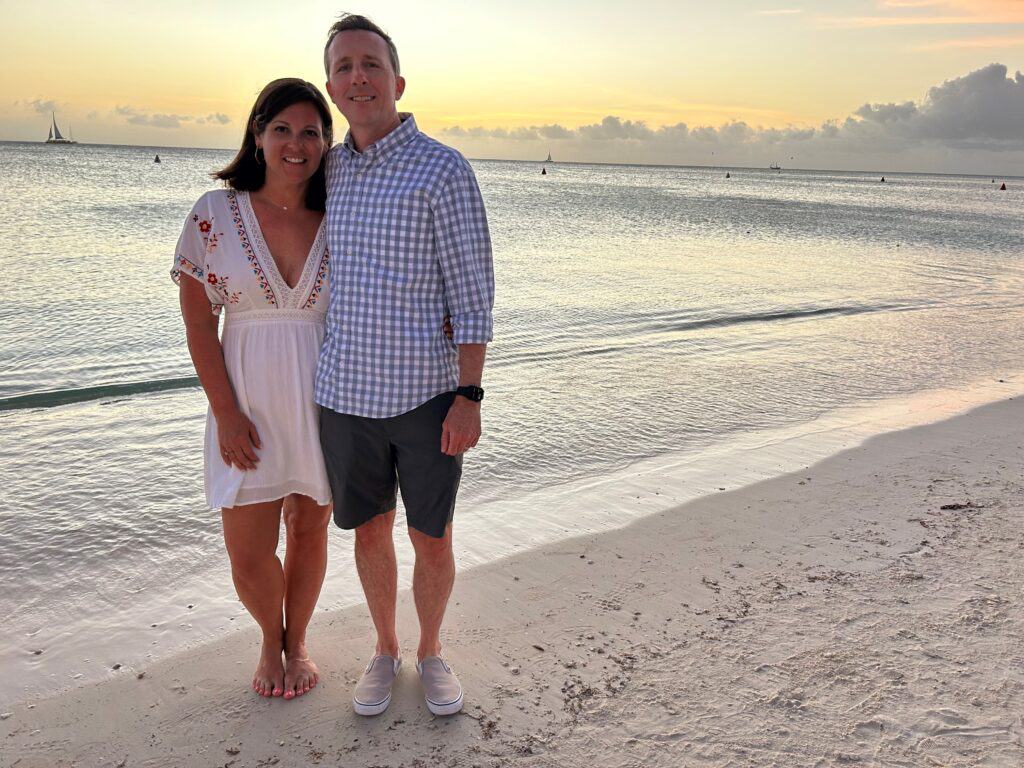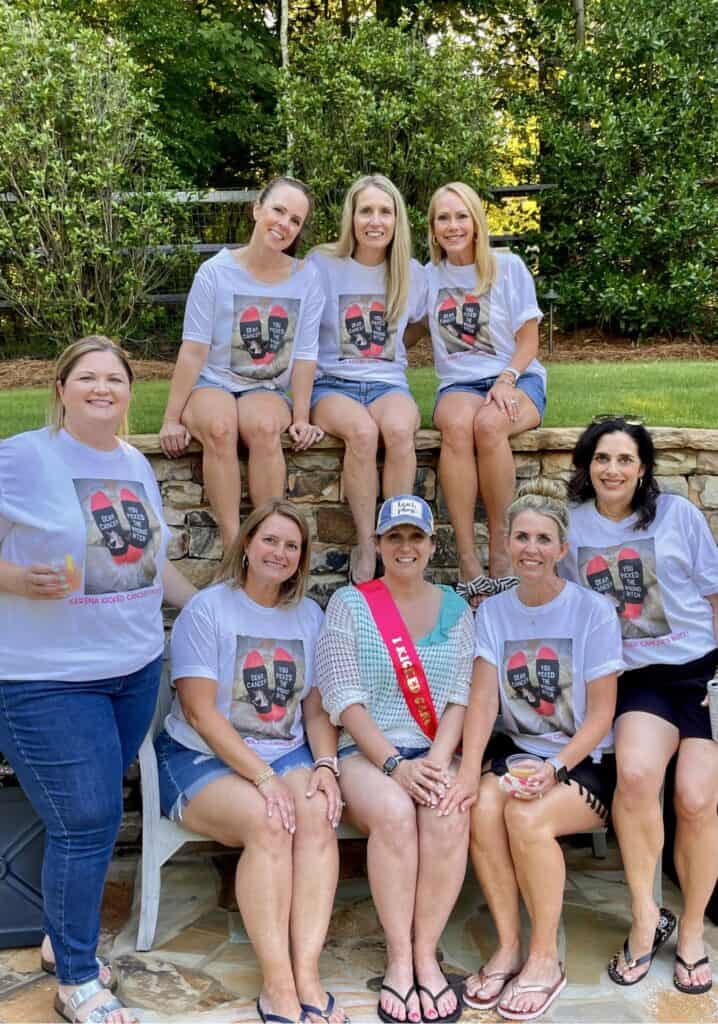
After a breast cancer diagnosis, Serena Stull needed to decide whether a lumpectomy or mastectomy was right for her.
Serena does not have a history of breast cancer in her family. Her mother did have non-Hodgkin lymphoma, and her grandmother had cervical cancer, so Serena assumed at some point, later in life, she might develop some type of cancer. “I thought maybe when I was in my 60s,” she said. She never imagined at age 45, she’d be diagnosed with breast cancer.
A Mammogram & Breast Ultrasound
“I went in for my annual OBGYN appointment in May 2023,” she said. “My doctor’s office has a mammogram machine, so I’m able to do everything at the same time. Nothing seemed odd, everything seemed fine.”
A week and a half later, Serena got a call back, her first since starting mammograms at age 40. “They saw a spot and wanted me to get another mammogram and a breast ultrasound,” she explained. “It was unnerving, but I have friends who’ve been called back before and it’s been nothing, so I tried not to be worried.”
The Breast Cancer Diagnosis
During the breast ultrasound, the tech immediately saw something. A week later, Serena had a biopsy. The results showed she had stage 1 infiltrating ductal carcinoma. “The diagnosis was not something I expected at all. But I have a strong faith, and I kind of think in the back of my head it was going to be something, it was going to be lifechanging,” she said.
Serena grappled with her diagnosis. “I tried to process. You want every answer right then and there for all the questions going through your mind,” she said. “How bad was it? Was I going to die? Did I need chemotherapy? I knew I did not want a mastectomy; I was adamant about that. I did not want to do any of this. It was a roller coaster.”
Lumpectomy or Mastectomy
The breast surgeon and nurse practitioner sat down with Serena and discussed her options. “I continued to be adamant that I wanted a lumpectomy since it was so small, 1.2cm. I was adamant that I was not going to have a mastectomy. Then we did a breast MRI.”
The breast MRI showed another spot the ultrasound had not picked up, bordering on stage 1. The surgeon said Serena could have a lumpectomy on each breast, but that there was no guarantee her breasts would have an even-looking appearance.
“I talked to the surgeon and the plastic surgeon and learned more about mastectomies and what they entail,” Serena said. “I prayed about it and got as much information as I could.”
Rather than having the lumpectomy, Serena opted to undergo a double mastectomy. “I did not want to worry about the cancer coming back. I wanted my breasts to look the same, so this was ultimately the best choice for me.”



Serena Chooses the Right Surgery for Her
Because Serena opted to have a double mastectomy, she did not need radiation therapy. Prior to her surgery, chemotherapy was not on the table. However, after surgery, her doctor recommended she have four rounds of chemotherapy because the growth rate of the cancer was high. Once Serena finished chemotherapy, she had breast reconstruction. She’s currently on medication for the next five years.
Giving Back
Serena is a builder specialist for Daltile, which is owned by Mohawk. She’s honored to work for a company that gives back to Komen. “Breast cancer is so close to home for me now, so it’s really special,” she said. To help give back to Komen personally, Serena and a friend will participate in an upcoming Komen 3-Day, which Mohawk sponsors.
“I’m healthy and I’m getting my strength back,” she said. “One in eight women in the U.S. are going to get breast cancer in their lifetime. Komen is doing so much to find the cures for breast cancer, they’re doing so much for the treatment of breast cancer. Imagine where we could be 10 years from now if Komen keeps doing what they’re doing.”
Read more about Mohawk’s partnership with Komen.
Statements and opinions expressed are that of the individual and do not express the views or opinions of Susan G. Komen. This information is being provided for educational purposes only and is not to be construed as medical advice. Persons with breast cancer should consult their health care provider with specific questions or concerns about their treatment.



